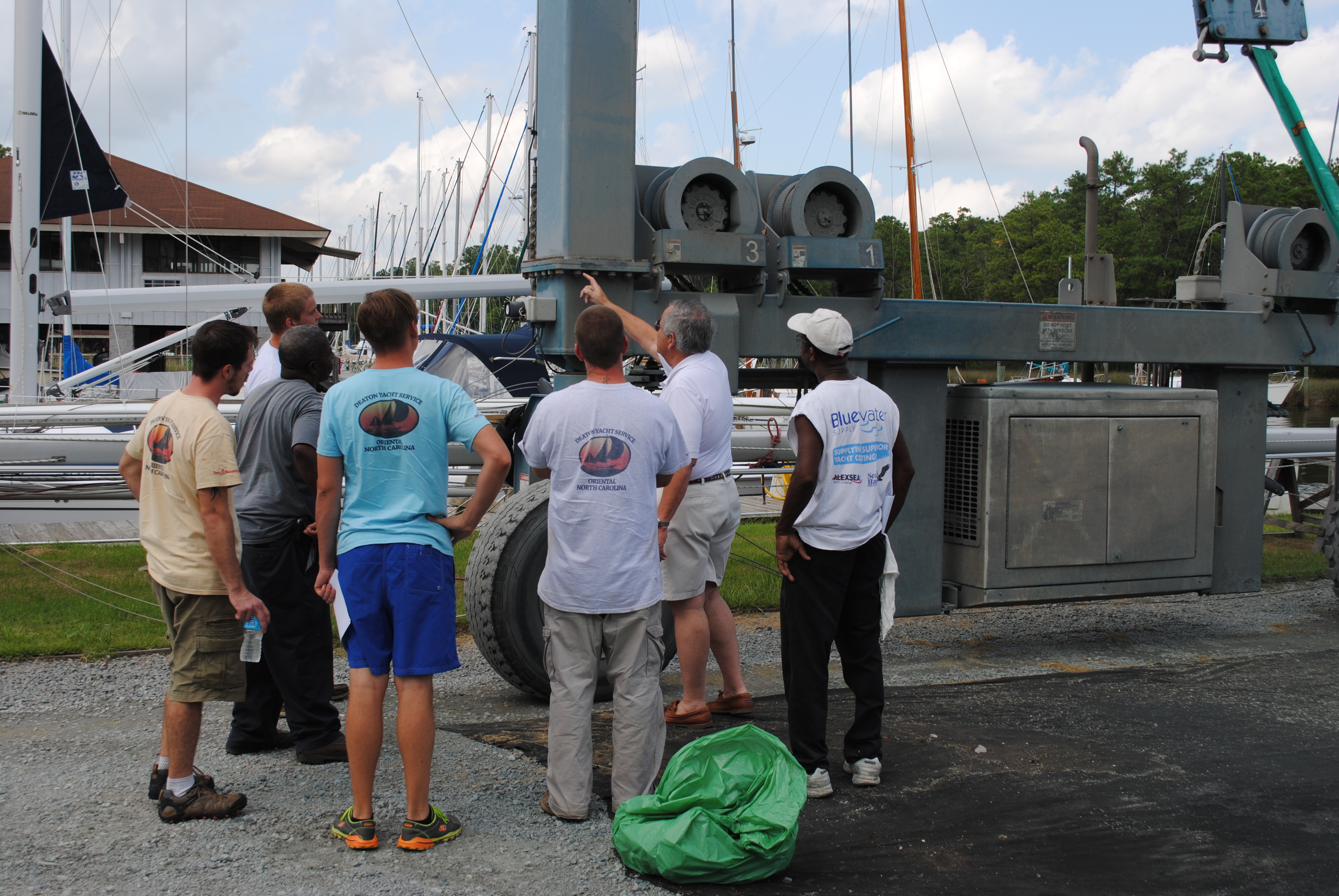
OSHA Dictates Many Employee Training Standards for Small and Large Businesses
Published on June 26, 2018With the Memorial Day holiday over, most marinas have completed the seasonal hiring process. Onboarding of new employees requires training related to the potential exposure to hazards in the workplace. Training requirements can be tailored based on the specific job duties, work sites and the exposures employees may face. The Occupational Health and Safety Act (OSHA) requires every employee to be trained, even if the employee is seasonal in nature. The size of business will determine the requirements for delivering employee training.
Under the Occupational Health and Safety Act of 1970, employers are required to provide employees with information and training on the hazards of the employee work area at the time of the employee’s initial assignment. In addition, OSHA has some requirements for regular training defined in a number of the OSHA standards. Marinas and boatyards should have a robust training program to accommodate new hires, especially seasonal staff.
The size of the business will determine the process of recordkeeping when it comes to employee training. Businesses with 11 or more employees during the calendar year are considered a large business. For many marinas, the employee count may fluctuate above 11 during the season and below the cut off during the off season. The criteria for determining the size of the business is based off the number of W-2s generated in a calendar year. Once the eleventh W-2 employee begins work, the business is considered a large business for the remainder of the calendar year. In many cases, in family run marinas, the employee count may be low, but several family members are on the payroll and as a result meet the criteria for a large business. When marinas are oscillating back and forth from small to large business classification, it is best to follow the OSHA requirements for large businesses.
As previously mentioned, all businesses will have the requirement to train employee regardless of the small or large business designation. The major change with the large business designation revolves around the processes of documentation and recordkeeping. For example, a small business can host a safety meeting and deliver a safety message of a topic. In this case, the company has hosted a meeting to discuss proper use of a fire extinguisher. The marina manager circulates a document, which lists the date, the safety topic, and requests each employee to sign the document. For small businesses, this method meets the OSHA recordkeeping requirement. For large businesses, OSHA will require an outline of the content delivered in the training course.
Every business should have documented policies and emergency response procedures. The documents should capture job specific policy requirements, such as chemical handling and storage, respirator use, personal protective equipment, machine guarding, ladders, fall protection, etc. In addition, each facility should have an emergency action plan, a fire prevention plan, a spill response plan, and a policy related to employee exposure to Blood Borne Pathogens.
Based on the scope of services a marina or boatyard may offer, the type of topics covered in a training program may vary greatly. However, here is a glimpse of what type of training courses may be required for a seasonal dock hand and a year round service technician:
• Seasonal Dock Hand Training
• Hazard Communication and Safety Data Sheets
• Dock Safety – Identifying and Correcting Trip Hazards
• Electrical Safety — Connect/Disconnect from Shorepower
• Electric Shock Drowning
• Heat Related Illnesses
• Personal Protective Equipment
• Fueling
• Pumpout
• Blood Borne Pathogens (exposure to bodily fluids in pumpout process)
• Spill Response
• Emergency Action Plan — Understanding Emergency Procedures, Evacuation and Muster Point
• Fire Prevention
• Fire Extinguisher Use
A year-round service technician may have a requirement for all of the courses listed above but may need additional training related to:
• Respirator Use
• Fall Protection
• Hazardous Chemical Storage and Handling
• Machine Guarding
• Lock Out/ Tag Out
• Ladder Safety
• Scaffold Use
• Powered Industrial Truck Certifcation
Robert Smith is Director of Marine Safety Programs for MYMIC Training Technologies in Portsmouth, Virginia. He can be reached at robert.smith@mymic.net or by phone at 757-589-5391.
| Categories | |
| Tags |





